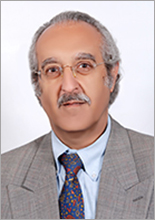Arab Capital Markets: Equity Markets Across the Arab World – Part II
Part II of this six-part series provides a brief overview of the structure of equity markets and capitalization across the Arab world.
Equity markets can be a valuable, dynamic mechanism for price discovery—facilitating capital investment, entrepreneurial equity finance, privatization, corporate restructuring, and corporate governance (Rocha et al. 2011). Efficient markets would be liquid, allowing trade to occur always with small spreads between ask and bid prices. They would enable market-based valuation of listed companies. To operate efficiently, markets would require an adequate infrastructure in terms notably of settlement and execution of trades, reliable disclosure of information, absence of insider trading, and credible governance of exchanges and listed companies. Arab stock markets have made significant progress in these areas but have still some way to go.
Market capitalization of Arab country stock markets is large by international standards. Their total market capitalization reached US$1.2 trillion in 2007, declining to US$870 billion by end-2009, as a consequence of the global financial crisis (Rocha et al. 2011). Following the political events of 2011 and the slow recovery of the world economy, Arab stock exchanges recovered slowly.[1] As of end-October 2013, the capitalization of six Arab stock exchanges reported by the World Federation of Exchanges was US$705.2 billion. There were 893 listed companies on those markets, of which only five were foreign. Amman and Cairo had the largest number of listed companies at 241 and 234, respectively.
The markets of Gulf Cooperation Council (GCC) countries account for three-quarters of the region’s market capitalization. The Saudi stock exchange is the largest, with a market capitalization of more than US$432 billion at end-October 2013, or about 60 percent of the country’s 2012 GDP. In Morocco and Egypt, market capitalization was close to 57 percent and slightly less than 23 percent of GDP, respectively.
One challenge facing Arab capital markets is that sector diversification of capitalization remains limited. Overall, financial institutions account for half of the region’s market capitalization.[2] Industry commands a smaller share than in other regions, and the service sector’s share is equal to that in Africa. This pattern reflects limited economic diversification in some countries of the region, and the fact that firms in the industry and service sectors do not see advantages in listing.
In Saudi Arabia, after financial institutions (including insurance), petrochemical and real estate companies have a sizable share of the market. In Egypt, capitalization may be diversified across sectors with sizable shares of financial institutions, construction and building materials, and telecommunications. In both Saudi Arabia and Egypt, the real estate sector has significant capitalization.[3] In Lebanon, as of mid-2012, bank stocks accounted for 70 percent of the aggregate trading value during the preceding four-month period, followed by the real estate sector at 29 percent, while other sectors shared the remaining 1 percent of the trading value.[4]
With this overview of Arab equity markets in mind, Part III of the series takes a quick look at two interesting challenges facing Arab equity markets. First, Part III examines why Arab equity markets have an unusual level of locked shares. Second, it examines some Arab governments’ initiatives to open equity markets to tackle with a view to encourage the financing of small and medium sized enterprises (SMEs).
Read Part I, Part III, Part IV, Part V, Part VI
[1] According to the 2013 World Bank Global Development Financial database (http://data.worldbank.org/data-catalog/global-financial-development ), as of end-2011, capitalization was just under US$900 billion.
[2] A larger share than in any other region except Africa. See also Tables 4 and 5 that provide the sector structure of trade on the Egyptian and Saudi stock markets.
[3] For Saudi Arabia, see http://www.tadawul.com.sa/ and for Egypt http://www.egx.com.eg/english/homepage.aspx.
[4] See MarcoPolis interview with the vice president of the stock exchange; http://www.marcopolis.net/lebanon-capital-markets-outlook-2012-0207.htm.
Wafik Grais is an International Senior Adviser specializing in Islamic finance, financial regulation, investment financing, private equity management, and corporate governance with expertise in SMEs and green growth financing. He was co-founder and chairman of Viveris Mashrek, a Cairo-based, financial advisory services company specialized in private equity investments in SMEs, licensed by Egypt's Financial Supervisory Authority. He spent 28 years in international finance notably with the World Bank in Washington DC where he held several senior positions both in operations and at corporate levels. He holds a Ph.D. in Economics.
